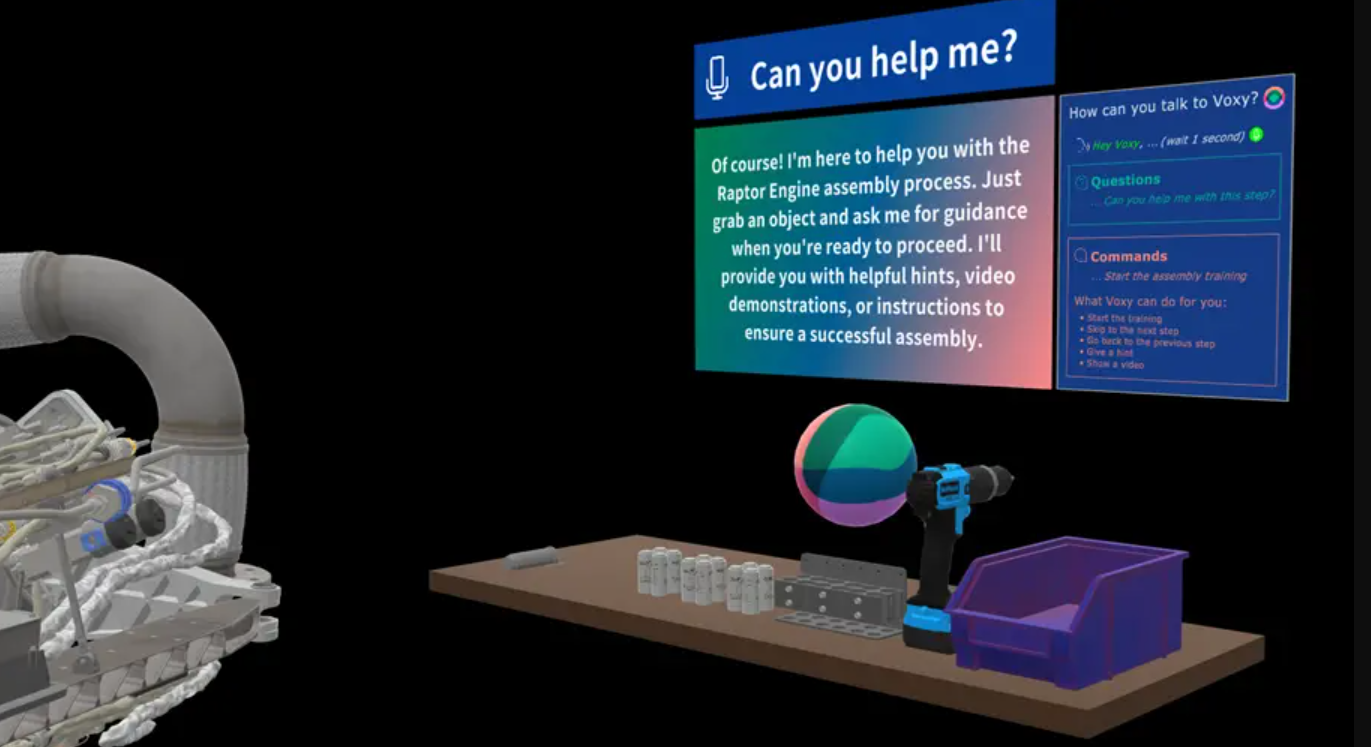Virtual worlds, real impact
What are the advantages and disadvantages of Artificial Intelligence (AI)? Will it actually make the world a better place—or not? Will AI soon support you in your work? What about the influence of Big Tech? And is AI a political issue? In this series, experts from the AI-hub Brightlands answer your questions about AI.
We’re speaking with Jerry Spanakis, assistant professor and researcher at Maastricht University. His work focuses on AI-powered speech recognition and enhancing Augmented and Virtual Reality (AR and VR) technologies with AI. In his VOXReality project, he’s developing live subtitles for theater performances in any language, virtual conferences, and an AI coach that teaches people how to repair aircraft engines.
Voice-driven innovation in VR
‘VOXReality is a three-year European project, in collaboration with VRDays (a European conference organizer), the Athens Festival (a cultural theater), four innovative SMEs (Synelixis, HOLO, Adapt, F6S), two research partners (Maastricht University and CERTH), and social XR experts (NWO-I).
We're exploring how AI-powered speech recognition can become truly useful in Virtual Reality. To do so, we developed three scenarios: a theater performance where the audience can respond live and influence what happens on stage, virtual conferences, and a digital assistant that helps students learn how to work on aircraft engines. The first pilot of these scenarios showed promising results, and a second round will follow in June.’
The text continues below the image.
‘I’ve been working in this field since before AI and data engineering became buzzwords. AI won’t replace people, but it can help us do more meaningful work. The real challenge is to look beyond the hype and focus on what we truly need.’
Jerry Spanakis
Unlocking potential
‘It’s not about replacing people—we still need them, especially to develop this kind of technology. I’m optimistic: AI isn’t taking over our jobs, but it is changing the way we work. With VOXReality, for example, a coach can support not ten but twenty students at once. It actually gives us room to do more.’
‘I recently came across a quote that really resonated with me—especially since I hate doing laundry: "I don’t want AI to take over my creative work; I want it to do my laundry." The impact of tools like ChatGPT diminishes if they don’t add practical value. I see a shift toward applications that actually solve real-life problems.’
Is AI a curse or a blessing?
‘AI can make the world a better place—after all, who wouldn’t want their laundry done?—but it depends on us. In Europe, we have things fairly well regulated, with laws like the European AI Act. Within VOXReality, every idea must pass an ethical review, because we’re essentially “testing on people.”
At the same time, there’s also a political side: big tech companies naturally have their own interests. The balance between users, researchers, governments, and businesses ultimately determines what AI will bring us.’
About VOXreality
In VOXReality, researchers are working on three projects where AI recognizes participants’ speech and actions within Virtual and Augmented Reality environments and responds accordingly. Currently, the technology is used to make theater performances interactive, allowing audiences to see live commentary from, for example, directors as extra background information during a show, or to receive real-time subtitles in their own language through AR glasses. Two other applications focus on teaching students how to repair aircraft and hosting virtual conferences that bring the conference experience directly into your living room.
This article is part of a series from the AI-hub Brightlands, where experts answer questions about artificial intelligence. This series provides in-depth insights into the impact of AI on various industries, the latest trends, and practical applications of AI technology.
Source: Brightlands newsletter
‘Right now, there’s too much hype around AI. I believe the technology will become more normalized in the coming years. The question will no longer be: What can AI do? but rather: What do we actually need? We’ll see more applications that truly match real-world needs.’
Jerry SpanakisAlso read
-
Andrés Caceres Solari on No room for Human Rights in Gaza and Ukraine: How the Law Legitimizes Urban Devastation
Pick Our Brains Session with Andres Caceres Solari

-
AMIBM hosts the final Realise-Bio conference
The Aachen Maastricht Institute of Biobased Materials (AMIBM) hosted last week the third and final Realise-Bio annual conference, bringing together the Dutch and German bioeconomy ecosystems at the Brightlands Chemelot Campus.

-
Macrophages as key to treating liver fibrosis
Sabine Daemen is researching how certain macrophages can slow down fatty liver disease and fibrosis in order to develop new therapies.
